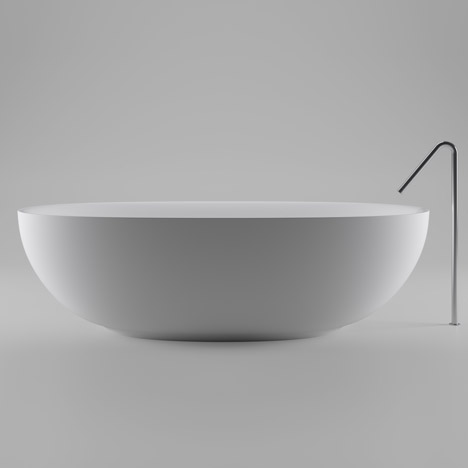Business news: luxury Italian kitchen and bathroom brand Boffi has acquired furniture company De Padova, adding free-standing pieces to its range of products in a move to appeal to the US market.
Acquiring the company in a cashless transaction, modular furniture brand Boffi has exchanged 7.5 per cent of its shares for 100 per cent ownership of De Padova. The financial value of the shares was not disclosed.
De Padova owner Luca de Padova has been made vice president at Boffi and the company's largest shareholder after Boffi CEO Roberto Gavazzi and his family.
Gavazzi told Dezeen that De Padova had suffered financially as a result of ongoing problems with the Italian economy, but that its products still had appeal for a wider market – particularly in the US, where Boffi is hoping to expand its business.
"De Padova had problems," said Gavazzi in an interview with Dezeen during Milan design week. "The other reason [for the acquisition] is that we as a company are mainly concentrated with system products that are made of different modules."
"We always wanted to complete our offer with the possibility to also have loose furniture," he said. "De Padova has always been a little bit my dream."
The acquisition was finalised two months ago after several years of talks, and announced last week during the design week.
It forms part of a wider strategy by Boffi to expand its range to include loose and built-in furniture that the brand hopes will appeal to the US market.
"The best market is the US market, it's a very strong market," Gavazzi said. "It's one of the fastest growing in the world. Miami has become an incredible hub of the Latin-American world. It's the place where they like to invest in real estate, where they like to go on holidays, where they like to have second homes – like London."
The two companies had a combined turnover of €75 million (£53.5 million) in 2014, but following the acquisition Boffi hopes to reach €100 million (£71.4 million) in turnover within four years.
Gavazzi said that both brands will retain their separate identities, with Boffi integrating a small percentage of De Padova's range into its showrooms and vice versa.
"We do not want in any way to mix the two companies, we want to keep them very well separated," said Gavazzi. "Well charactered by their own different identities with their own team, and own way of doing business, but of course trying to find synergies."
As part of the deal, De Padova's glass-fronted Milan showroom on Corso Venezia will close and relocate to a windowless warehouse, once occupied by the headquarters of luxury fashion business Dolce & Gabbana. This move is in part due to increasing rent prices, but according to Gavazzi it is also to communicate the change of ownership to customers.
"Going in the opposite way is a strong way to show that we are much more concentrated on interiors rather than the exterior part of the showroom," said Gavazzi. "We also like the idea of moving because we like the idea of discontinuity with tradition."
"We believe that the future of showrooms in the high end of the market will more and more have to convince because of what you find inside," he added. "The quality of not only the objects you find inside but also the quality of the people interpreting your most concealed desires, rather than having an incredible window that attracts you in to buy one piece."

